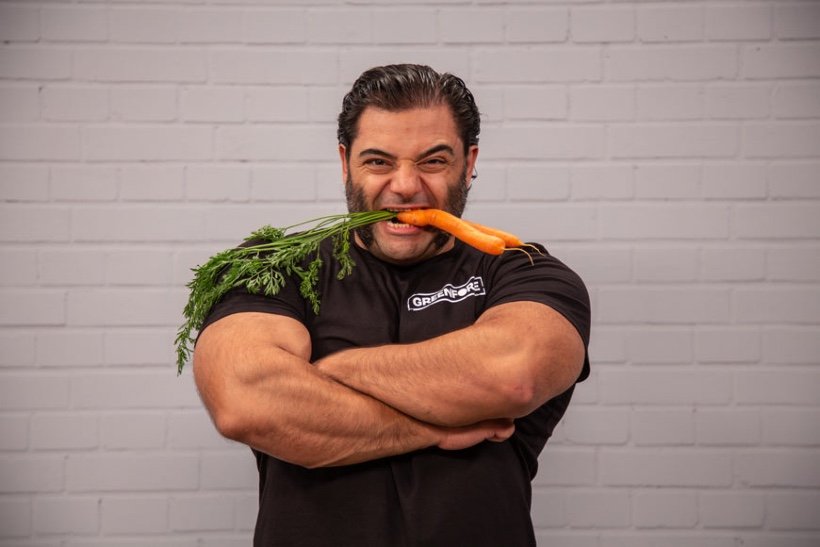How to Get Enough Protein on a Whole-Food Plant-Based Diet
Understanding how much protein you actually need, and why whole foods are the healthiest source.
Key Takeaways
Most people easily meet their protein needs on a whole-food plant-based (WFPB) diet.
All essential amino acids come from plants—no powders or combinations required.
Whole plant proteins support muscle health, healthy weight, and long-term wellness.
Protein deficiency is rare outside of calorie deficiency.
Plant-based diets provide enough protein for everyone, including athletes.
Why the Confusion About Protein?
If you’ve started eating more plant-based foods, you’ve probably heard it:
“But where do you get your protein?”
It’s a fair question. For decades, marketing has taught us that “real” protein only comes from meat, eggs, or dairy. Yet in truth, plants are the original source of all protein. That’s where cows, chickens, and even the strongest animals—like elephants and gorillas—get theirs.
As Dr. Ted Barnett (“Dr. Veggie”), founder of Rochester Lifestyle Medicine Institute, reminds Jumpstart participants:
“if all the food you eat is more than 8% Calories from protein (and most whole plant food is considerably more), you’re going to be getting enough.”
How Much Protein Do You Really Need?
Most adults need about 10–15% of their daily calories from protein, or roughly 50–60 grams per day. Many whole, plant-based diets naturally fall within this range.
If you’re eating a variety of whole plant foods, you’re getting all the amino acids your body needs—no special powders, combinations, or tracking required.
A helpful way to think about it:
A cup of cooked lentils: ~18 grams
A cup of quinoa: ~8 grams
A baked potato: ~4 grams
A handful of almonds: ~6 grams
Together, they easily meet your daily needs.
Photo Source: Vegan Food and Living
Do Active People or Athletes Need More Protein?
Yes—but probably less than you think.
Highly active people may benefit from slightly more protein, yet that need is still easily met through whole plant foods. Beans, lentils, soy products, and whole grains provide abundant amino acids for muscle growth and repair.
Many elite athletes are also proving what’s possible with a plant-powered approach. Patrik Baboumian, a record-holding strongman and author who was featured in the documentary The Game Changers, is one of several athletes demonstrating that peak performance and strength are fully compatible with a plant-based diet. He recently shared his story at a meeting of the Rochester Area Vegan Society, inspiring others to discover their own version of “strength without sacrifice.”
Plant Protein and Long-Term Health
Choosing plant protein isn’t just about meeting your needs—it’s about protecting your health for life.
Animal-based proteins often come packaged with saturated fat, cholesterol, and compounds that promote inflammation and oxidative stress. Over time, these contribute to chronic diseases such as heart disease, diabetes, and cancer.
Plant-based proteins, in contrast, are associated with lower risks for these same conditions, improved metabolic health, and better weight management. The fiber and phytonutrients in plant foods help regulate blood sugar, support gut health, and keep you feeling satisfied longer.
For a deeper look at this topic, see Dr. Michael Greger’s video Animal Protein vs. Plant-Based Protein from NutritionFacts.org.
The Healthiest Way to Get—and Stay—Strong
The truth is simple: you don’t need special powders or animal products to get enough protein. A colorful, varied, whole-food plant-based diet provides all the nutrients your body needs to build muscle, repair tissue, and protect your health long-term.
Whether your goal is to prevent disease, maintain a healthy weight, or simply feel stronger each day, whole plant foods are the foundation.
If you’d like guidance and community support, RLMI’s Jumpstart program can help you build lasting habits that nourish both body and mind.
For continued learning and connection, the RLMI Community offers hands-on support, peer encouragement, and ongoing resources to help you thrive.
Because real strength comes not just from what’s on your plate—but from the community that helps you sustain it.



